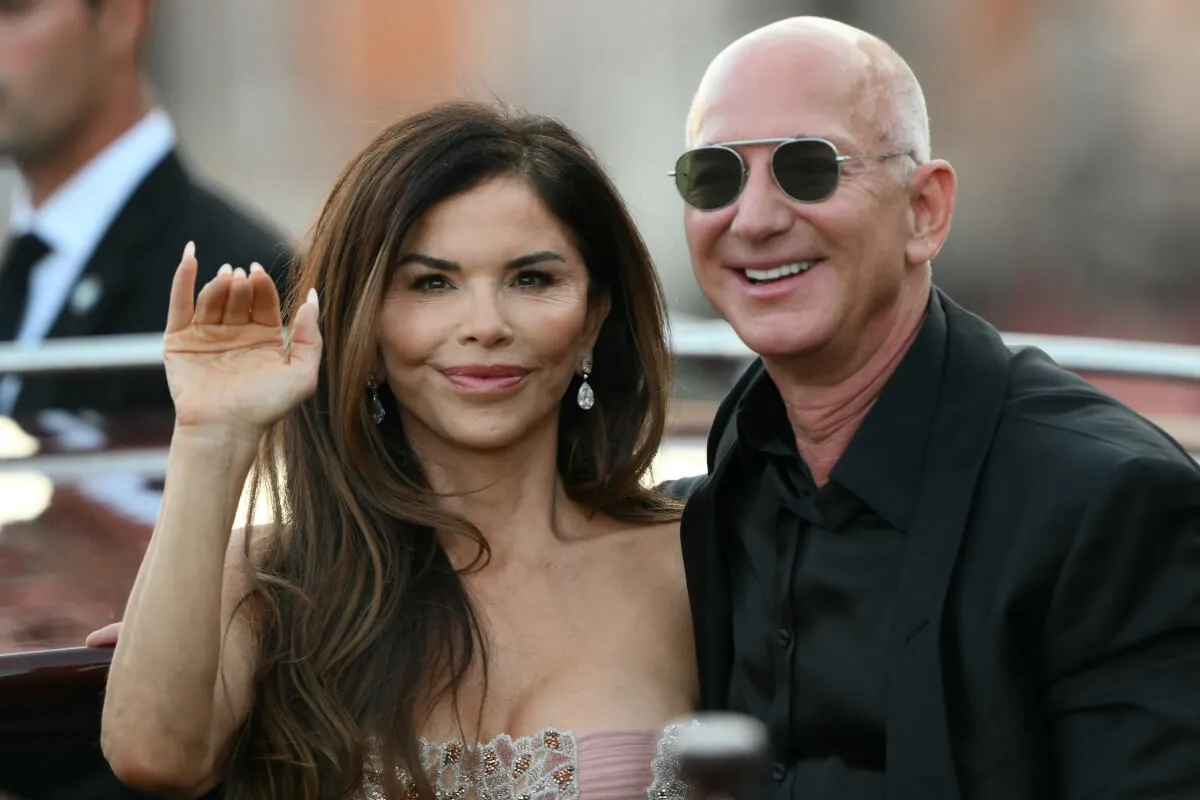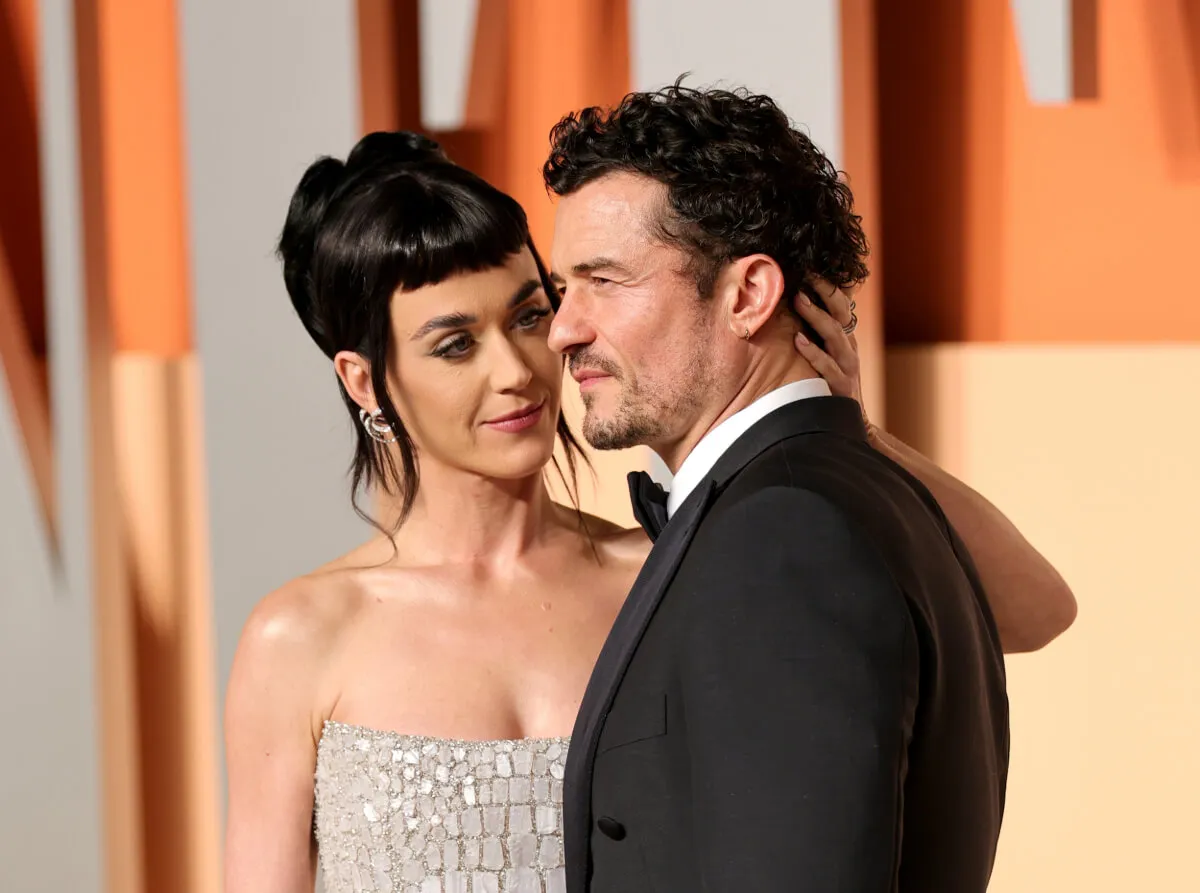‘Men’: How Toxic Masculinity Terrifies in New A24 Movie
Men has a very powerful message built around toxic masculinity. However, the latest “elevated” A24 horror film naturally approaches it in the type of strange and surreal context one would expect from filmmaker Alex Garland. Here’s a look at the various ways that Men approaches different forms of toxic masculinity.
[Spoiler alert: This article contains spoilers from Men.]
‘Men’ explores masculinity and feminity in traveling solo
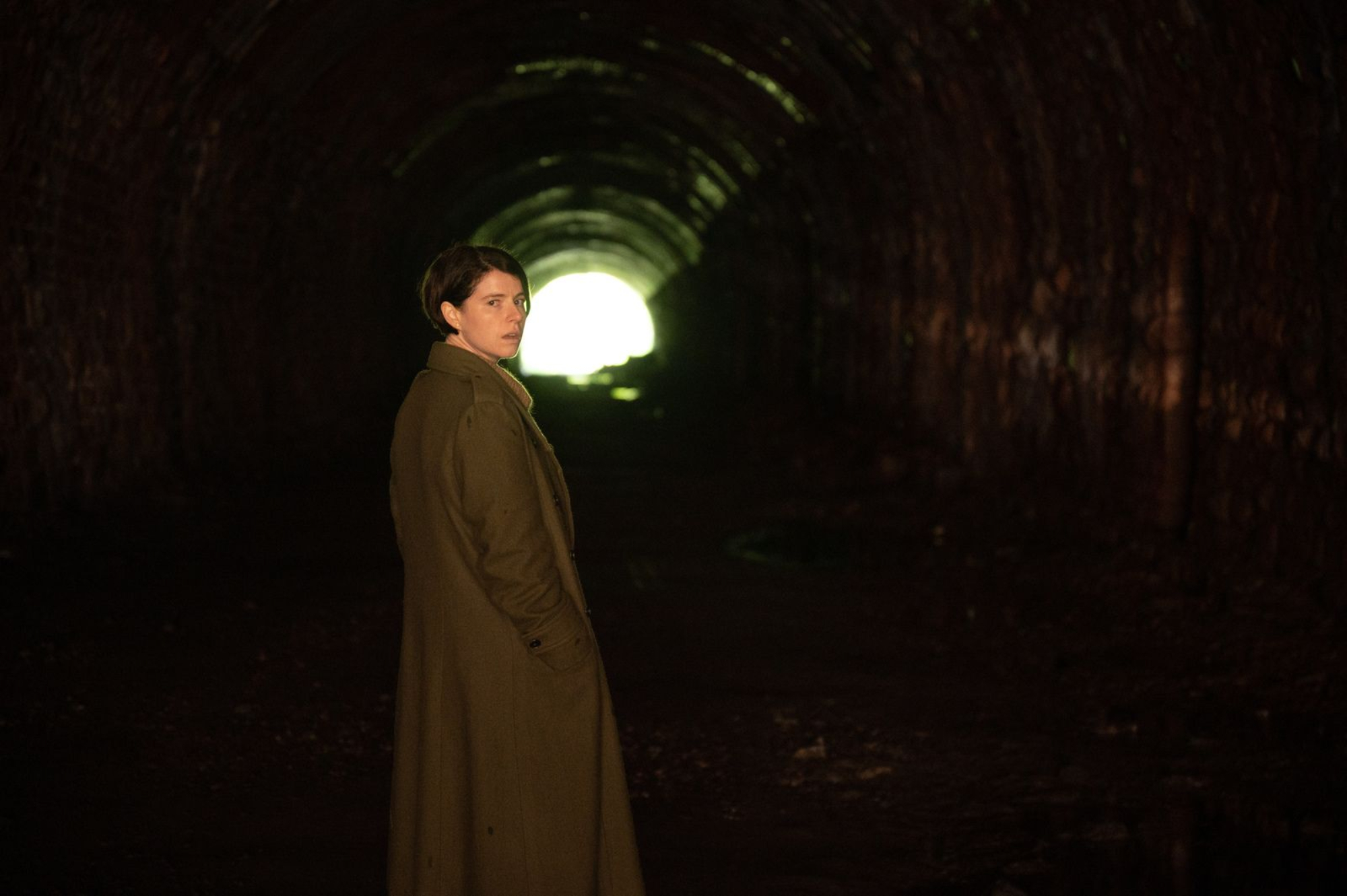
Garland opens Men after Harper’s (Jessie Buckley) husband, James (Paapa Essiedu), falls to his death. She decides to go on a solo vacation to the English countryside to begin the healing process, but she would never predict the strange dangers that await her.
She first meets the landowner named Geoffrey (Rory Kinnear), who gives her a tour around the old house filled with the charm she was looking for. However, she tells her friend, Riley (Gayle Rankin), over FaceTime that he’s quite the character.
Men quickly brings masculinity into the conversation when Geoffrey asks Harper where her husband is. He recognized in their previous conversation that she’s a “Mrs.,” but she responds with a vague retort that would allude to a divorce. However, it visibly bothers Harper that this would be brought up, along with the reminder to not flush “feminine items” down the toilet due to the plumbing.
The naked stalker
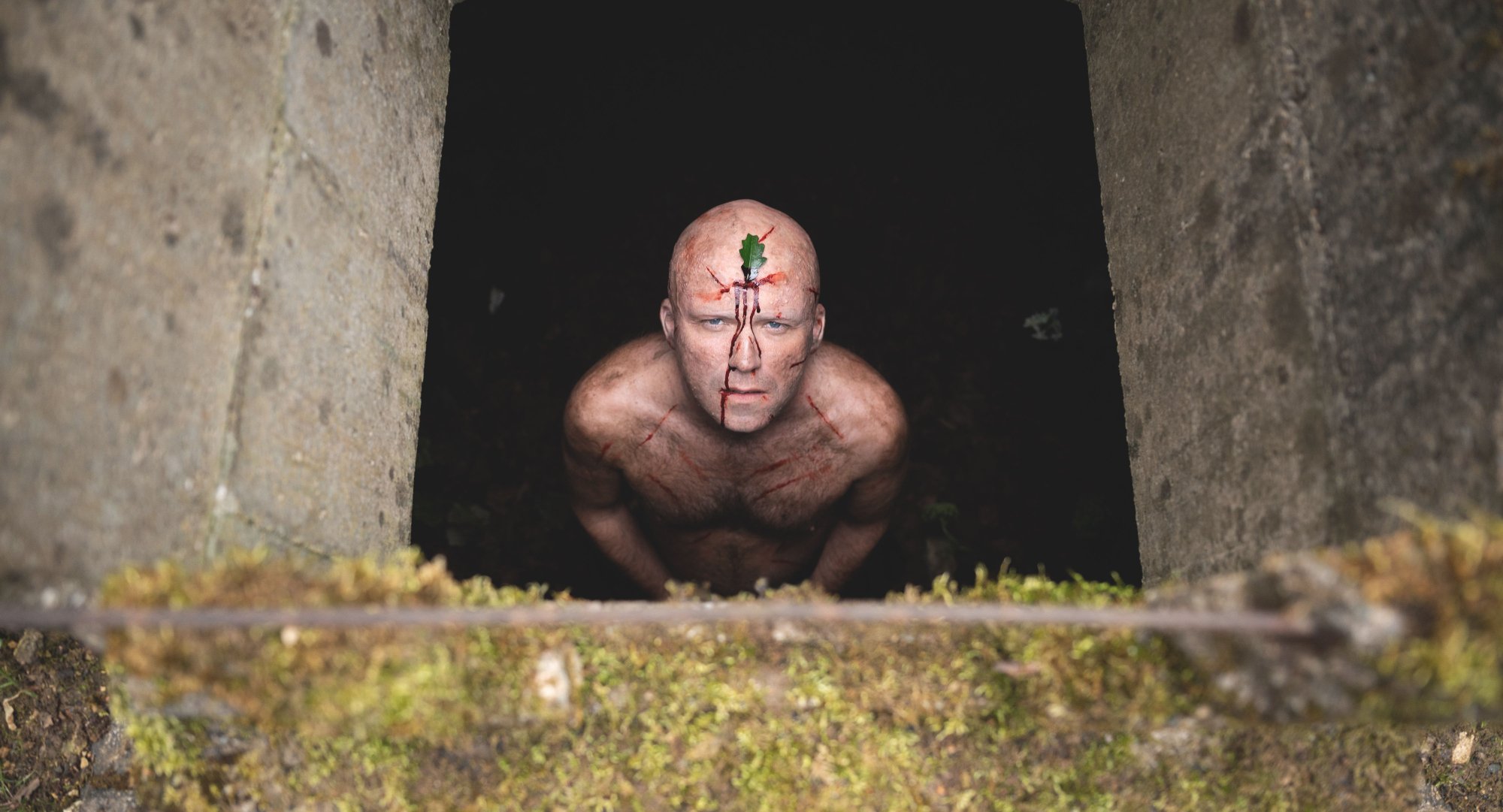
Men truly incorporates its horror aesthetic as Harper takes a walk through nature. She finds a tunnel and amuses herself by making a song with the use of her voice echoing. However, Harper sees the silhouette of a man at the end of the tunnel, who begins bolting toward her.
Garland reveals that the man is fully nude, and makes a few chilling appearances throughout the movie. However, it’s particularly scary that he has the exact same face as Geoffrey. He finds his way back to Harper’s residence in a terrifying attempted home invasion.
Men doesn’t make it instantly clear what this man wants with Harper, but sexual masculinity is the most obvious from the start, given his naked appearance. She’s most terrified of this man, but his actions continue to get even more threatening through the film’s climax.
The naked stalker in Men represents the unwanted and unrelenting toxic masculinity thrust upon Harper. However, it ultimately connects to other areas, as well, including religion.
‘Men’ depicts toxic masculinity in authority figures
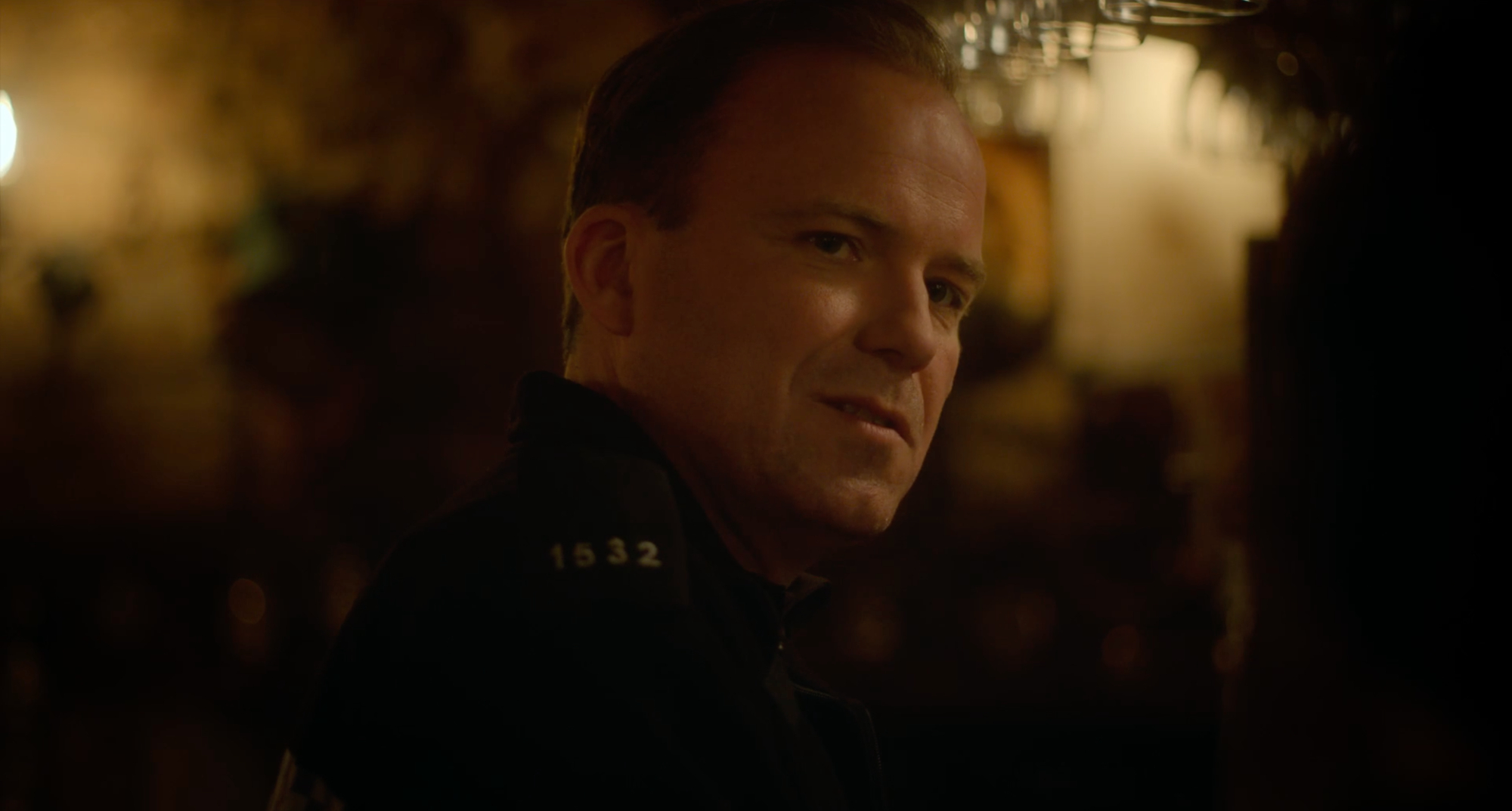
Harper calls the police when the naked stalker tries to break into the vacation home. Two police officers arrive – one man and one woman. Similar to every other man in the film, he has the same face as Geoffrey. The female officer tries to provide Harper with some peace of mind, as they take him into custody.
Men depicts how toxic masculinity can also extend to authority figures, including law enforcement. Harper has another couple of interactions with him. One is at the pub, where he informs her that the naked stalker was released from their custody. They didn’t have anything to charge him on and he dismisses her fears and horrific experience.
In the film’s climax, Harper looks outside and sees the police officer standing near the apple tree. However, he suddenly disappears when the motion sensor lights flash. He reappears running at her, shouting, but she narrowly makes it back inside.
Masculinity is never to be trusted in Men, constantly acting as a source of terror and confusion for Harper.
The ‘troubled’ youngster
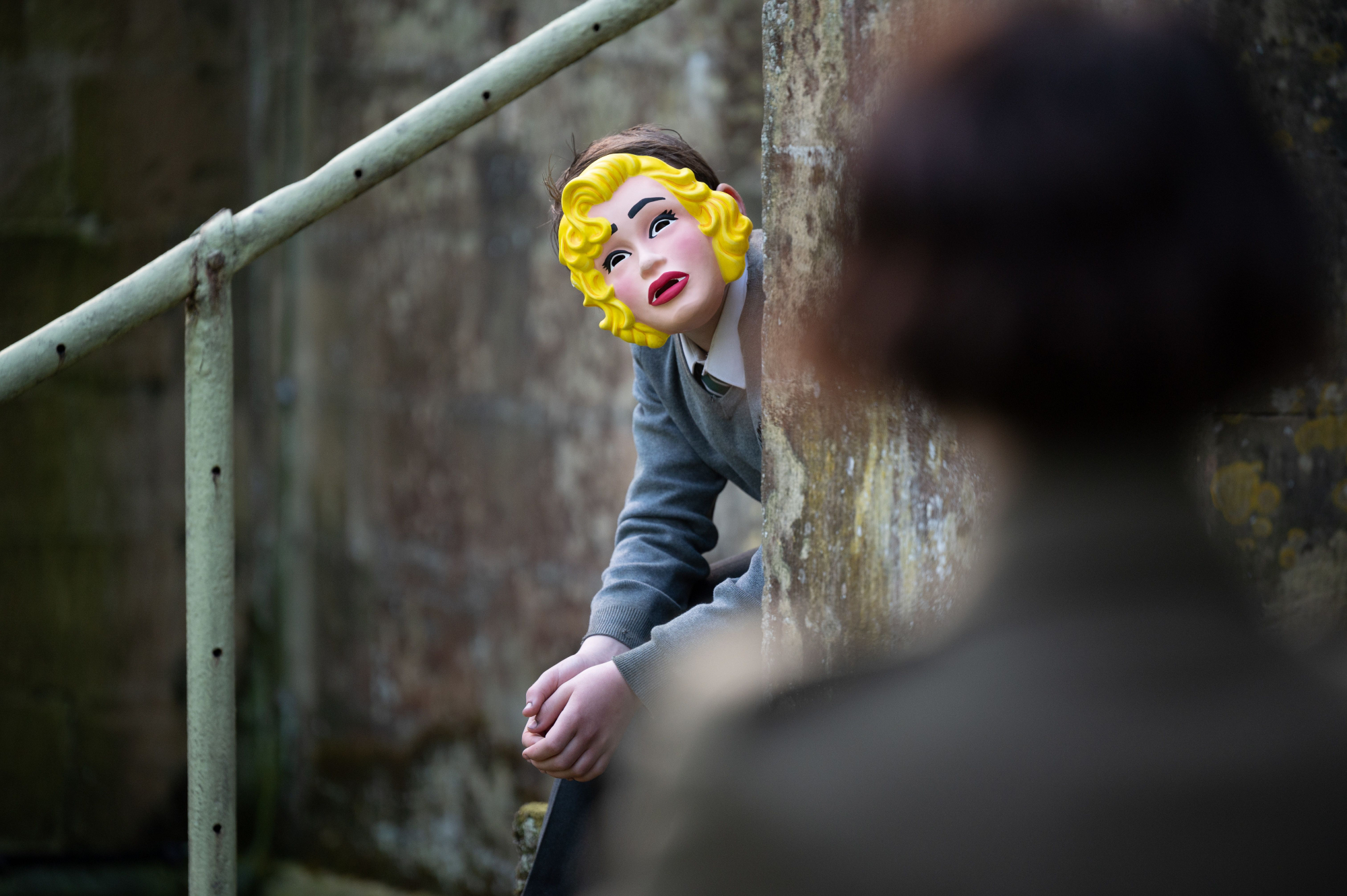
Harper decides to go to the nearby church, where she encounters a youngster wearing a mask. He takes it off to once again reveal Geoffrey’s face, but quickly becomes upset and calls her obscenities when she doesn’t agree to play a game with him.
It’s clear that the youngster has some sort of attraction to Harper, but Men displays toxic masculinity through rejection. He doesn’t accept no for an answer, feeling entitled to an affirmative response. His egotistical and aggressive behavior is brushed off with a “boys will be boys” type of excuse, failing to truly comment on the nature of his comments.
Harper ultimately agrees to play a game of hide and seek with him at the vacation home. However, this quickly becomes a terrifying game that represents the cat-and-mouse nature of male sexual pursuits, as she fights to stay alive.
‘Men’ depicts toxic masculinity in religion
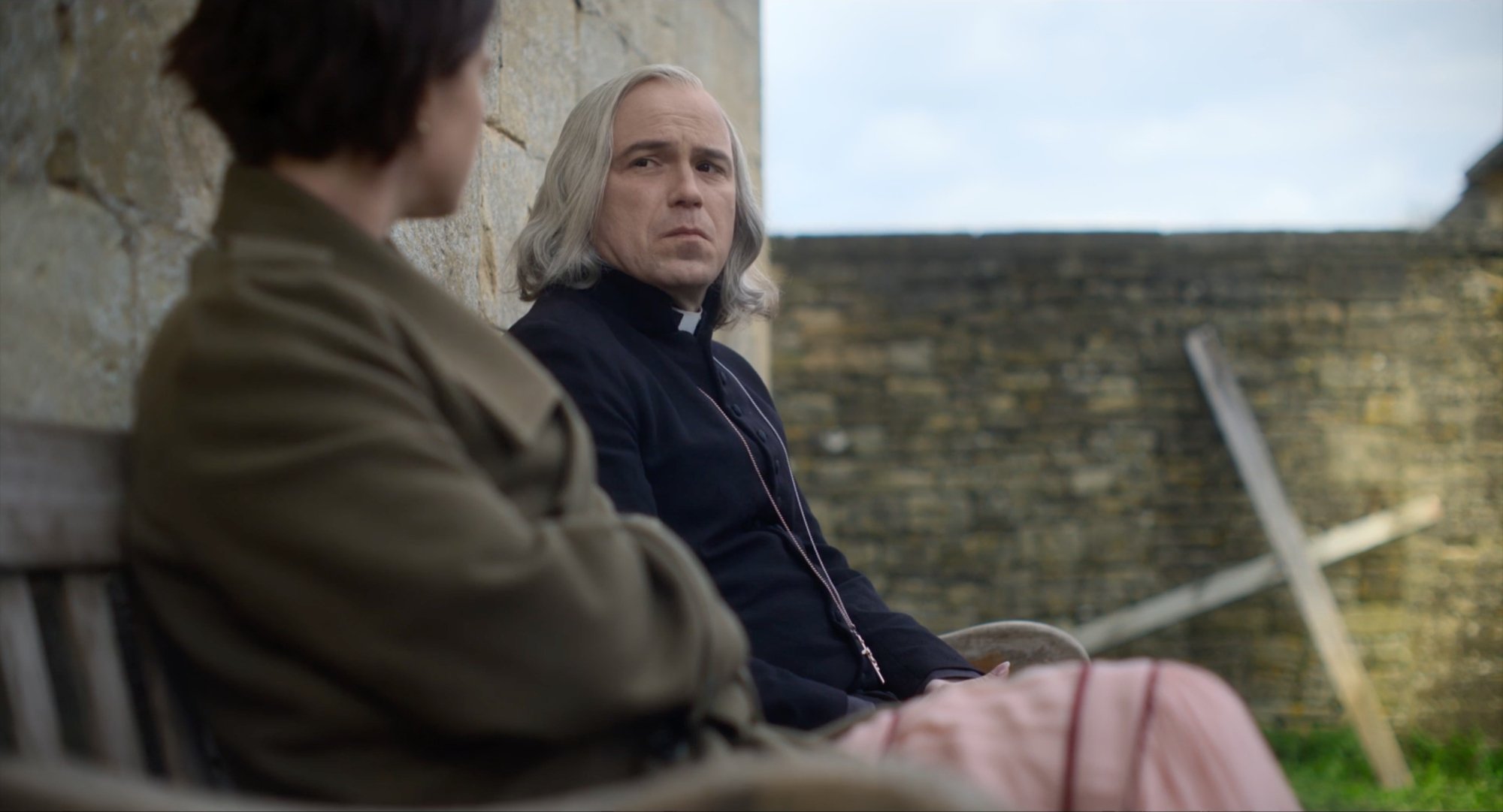
Men infuses an abundance of religious themes throughout its examination of toxic masculinity. Harper meets the church’s priest at the same time as the youngster. He witnesses her breaking down in the church, but simply watches her and doesn’t interrupt her.
Harper and the priest have a heart-to-heart, as he offers his ear for her to voice her mind. She fully explains her argument with James, which resulted in his death soon after he physically abused her and she kicked him out of their apartment. However, the priest didn’t offer kind words but tried to gaslight her to believe that his death was on her hands.
She responds with anger and frustration, but the priest explains that she knows he’s right. Men highlights toxic masculinity in relationships, as they are understood by conservative religious values. He asks Harper if James would still be alive if she allowed him to apologize for hitting her and minimizes violence against women.
Additionally, there is a lot of religious iconography throughout Men that offers a duality between masculinity and feminity. This is only further depicted in a bonkers final act of body horror, as each of the men proceeds to give birth to one another from various parts of their bodies.
The pub atmosphere
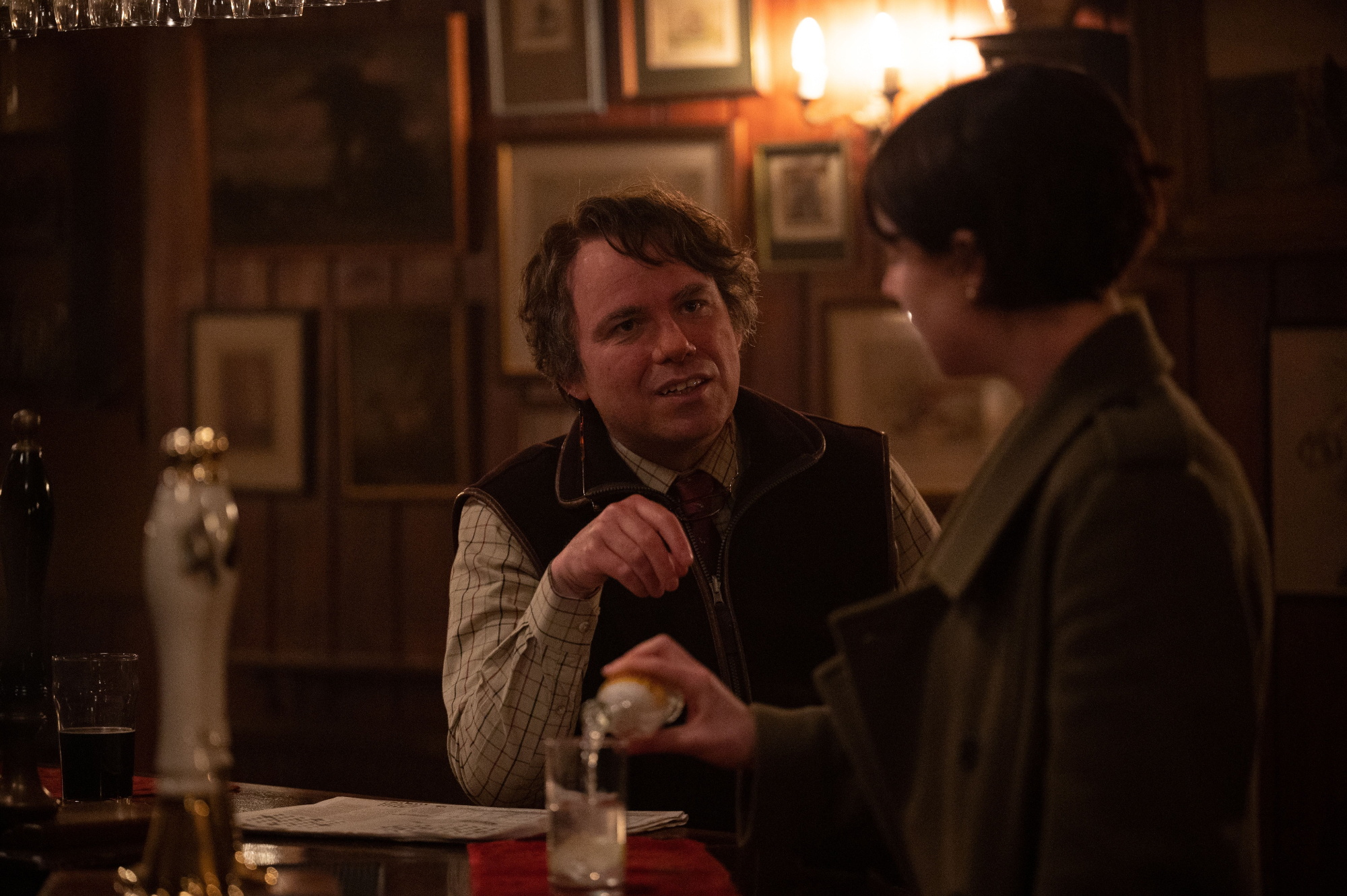
Harper ends up at the pub at one point in the movie, but she quickly discovers that all of the men, including the customers and the bartender, look like Geoffrey. She initially hesitates to enter the pub, but still sits down to have a drink. Nevertheless, they all stop to stare at Harper.
As the only woman in the pub, Men makes it clear that the masculinity in this surreal horror film casts Harper as the constant outsider. Her only real connection is with Riley, although their FaceTime connection is constantly interrupted.
Men observes toxic masculinity on a macro level, rather than on the micro. Regardless of the man’s career, intentions, or interactions, they all have the same face. Harper is trapped in a hellish nightmare where simply existing as a woman is reason enough for men to taunt and psychologically torture her.
Garland doesn’t spoon-feed any answers to the audience, as he leaves a lot of mysteries. However, the arrival of Riley brings a smile to Harper’s face. Is the nightmare over or is it simply one never-ending nightmarish trip of toxic masculinity?
